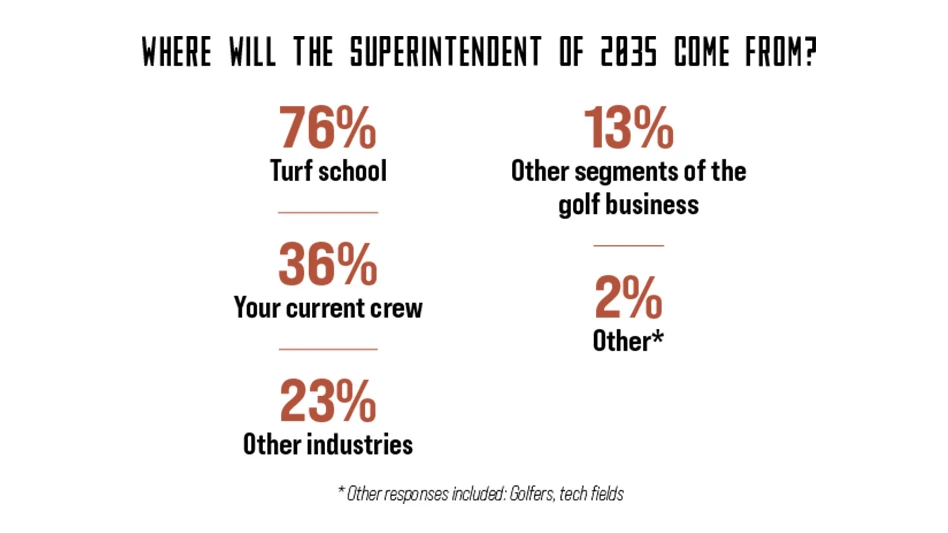
As technology advances and is incorporated into the turfgrass industry, training and knowledge in these areas must grow as well. As technology evolves, so must education.
The USGA Greenkeeper Academy has recognized this need, and will continue implementing necessary training, says Jordan Booth, senior director for Course Consulting Services for the USGA Green Section.
“If we’re going to be using autonomous mowers and GPS-guided sprayers and oil sensors and all these things, maybe even drones, that sort of technology, we need more technically minded people with more skills,” Booth says. “We’ve identified that we need to combine the on-job training, where we learned so much in this business working on golf courses, with college-level education that we can provide at little to no charge.”
The USGA Greenkeeper Apprenticeship Program provides students with an educational opportunity different from a typical four-year bachelor’s program. Students take classes through Horry Georgetown Technical College or Sandhills Community College, receiving an education while working full time on a golf course in the Carolinas and earning their degree in a shorter amount of time.
Technology training is implemented in both the classroom and through on-the-job training, preparing students for the future of golf maintenance.
“We focus on that every week, every month, in class,” Booth says. “We also provide a lot of additional learning experiences, whether it be at a GCSAA conference or local conferences. We work with our partner golf courses to promote the use of these technologies and make sure that we’re working with forward thinkers as mentors for our apprentices.
“Blending that technology in the classroom with technology on the job experience, giving our students access to these different things allows them to gain that experience, and, more importantly, gives them a little bit of a head start and advantage when they’re in the job market.”
Booth, who received his undergraduate degree at Clemson University in turfgrass management and science and earned his master’s degree under Dr. David McCall at Virginia Tech, says the things he learned during his time in school are still just as applicable to the job now.
“Water management, soil science, fertility management, turfgrass selection, differences in turfgrass species, all those are still going to maintain the foundation of our education,” he says.
The Greenkeeper Apprenticeship Program also provides students with tools in people management. “You’re going to be managing people,” Booth says. “You’re going to be managing a lot of equipment, assets and resources. That’s one of the things we try to give our students is access to business management, development, budgeting, finance, communication and professional development.”
Education will remain focused on the same foundation, but modern technology will be more deeply rooted. “I was just using different equipment, and now our students are using a lot more modern technology to help their golf courses make better decisions. An example is a handheld moisture meter. When I was in school, that wasn’t even a thing yet in my undergraduate work, and now it’s pretty ubiquitous throughout the industry.”
As a superintendent, incorporating technology is inevitable and necessary. “If you’re not a lifelong learner, you’re not going to be successful,” Booth says. “Our best superintendents are problem solvers, lifelong learners, and they do that often by doing the work.”







Explore the January 2025 Issue
Check out more from this issue and find your next story to read.
Latest from Golf Course Industry
- From the publisher’s pen: Conscientious of a bigger role
- Bernhard and Company partners with Laguna Golf Phuket
- Terre Blanche showcases environmental stewardship
- VIDEO: Introducing our December issue
- Bernhard and Company introduces Soil Scout
- Nu-Pipe donates to GCSAA Foundation’s Centennial Campaign
- GCSAA enhances golf course BMP tool
- Melrose leadership programs sending 18 to 2026 GCSAA Conference and Trade Show





